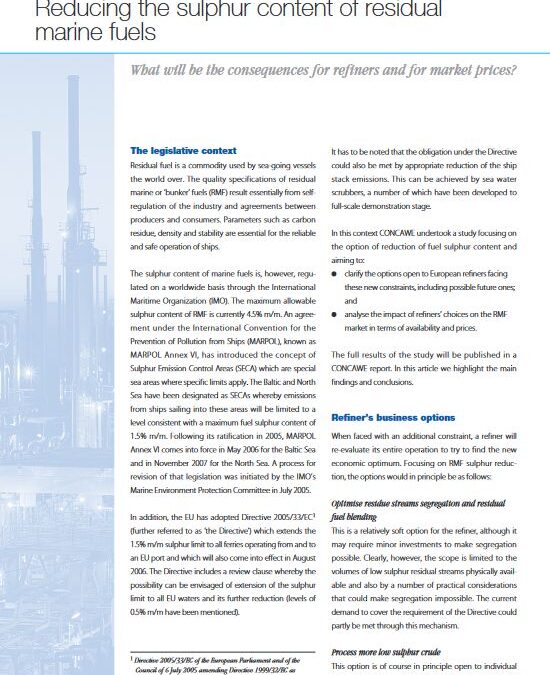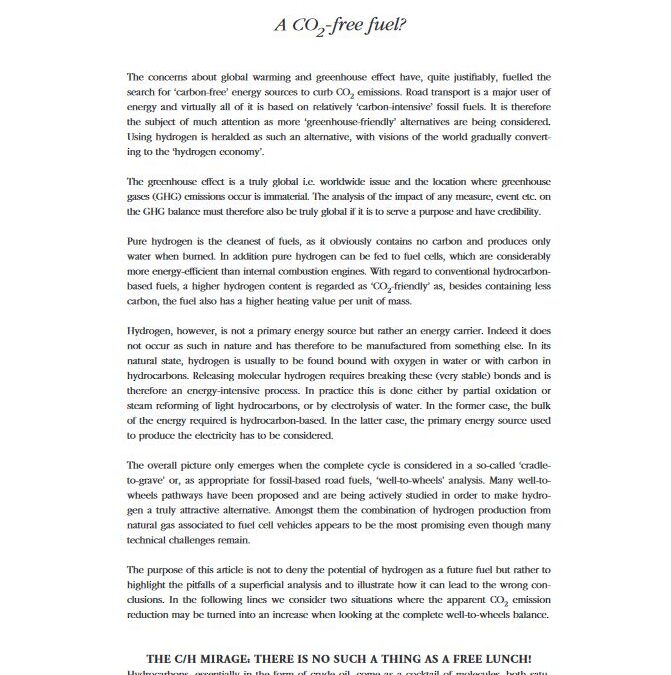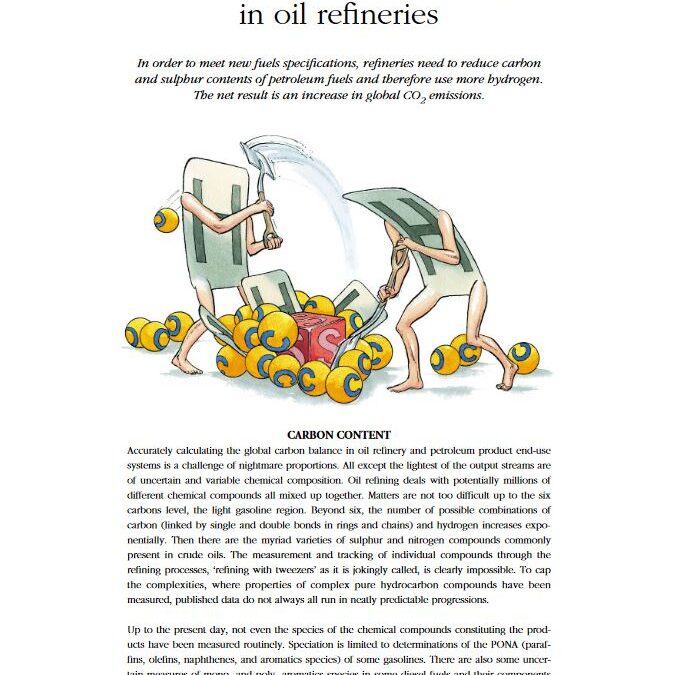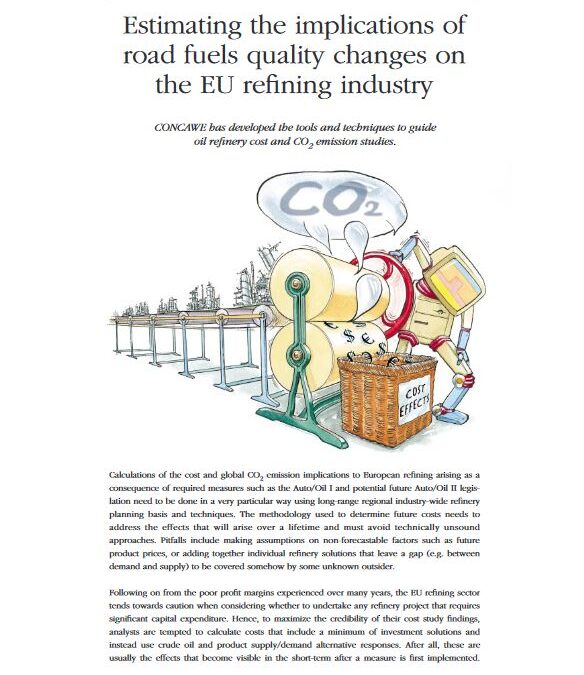


Hydrogen
The concerns about global warming and greenhouse effect have, quite justifiably, fueled the search for ‘carbon-free’ energy sources to curb CO2 emissions. Road transport is a major user of energy and virtually all of it is based on relatively ‘carbon-intensive’ fossil...
Carbon, sulphur and hydrogen in oil refineries
Accurately calculating the global carbon balance in oil refinery and petroleum product end-use systems is a challenge of nightmare proportions. All except the lightest of the output streams are of uncertain and variable chemical composition. Oil refining deals with...